- sort orderDefault
Photo title, A → Z
Photo title, Z → A
✔ Date created, new → old
Date created, old → new
Date posted, new → old
Date posted, old → new
Visits, high → low
Random - Google Map
- map
 home / Insecta · vabzdžiai / Diptera · dvisparniai / Tachinidae · dygliamusės / Gymnosoma clavatum · dygliamusė
home / Insecta · vabzdžiai / Diptera · dvisparniai / Tachinidae · dygliamusės / Gymnosoma clavatum · dygliamusė

-
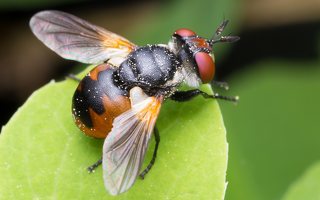 Gymnosoma clavatum female · dygliamusė ♀
Gymnosoma clavatum female · dygliamusė ♀
-
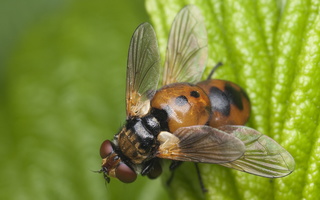 Gymnosoma clavatum mating · dygliamusės poruojasi
Gymnosoma clavatum mating · dygliamusės poruojasi
-
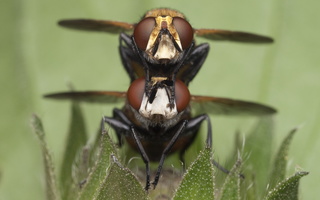 Gymnosoma clavatum mating · dygliamusės poruojasi
Gymnosoma clavatum mating · dygliamusės poruojasi
-
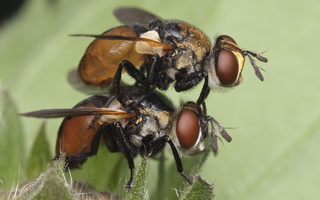 Gymnosoma clavatum mating · dygliamusės poruojasi
Gymnosoma clavatum mating · dygliamusės poruojasi
-
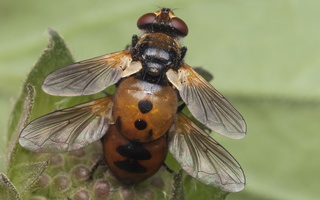 Gymnosoma clavatum mating · dygliamusės poruojasi
Gymnosoma clavatum mating · dygliamusės poruojasi
-
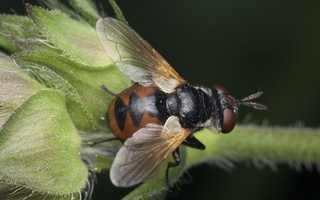 Gymnosoma clavatum female · dygliamusė ♀
Gymnosoma clavatum female · dygliamusė ♀
-
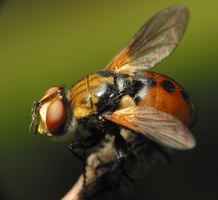 Gymnosoma clavatum male · dygliamusė ♂
Gymnosoma clavatum male · dygliamusė ♂
-
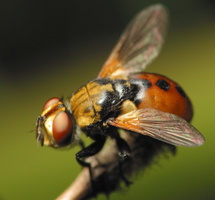 Gymnosoma clavatum male · dygliamusė ♂
Gymnosoma clavatum male · dygliamusė ♂
-
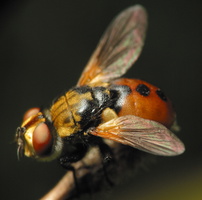 Gymnosoma clavatum male · dygliamusė ♂
Gymnosoma clavatum male · dygliamusė ♂
Gymnosoma clavatum · dygliamusė
- zbójniczka łąkowa
https://en.wikipedia.org/wiki/Gymnosoma_clavatum Gymnosoma species are difficult to distinguish so I am not sure for ID.
Gymnosoma clavatum can reach a length of 6–8 mm. These flies have a black thorax, but males have a mesonotum with golden pruinosity up to the transverse suture. Scutellum is black with two pairs of marginal setae and a quite characteristic red sub-globular abdomen, without setae but with large black markings in the middle. In the females thorax before the scutellum has three spots of dusting. Abdominal tergites are completely fused. The compound eyes are red. Antennae are black. Wings are slightly darkened, with yellow basicostae. Femora and tibiae are black.
Adults can be found from May to October. These flies are endoparasites of various Pentatomidae species, on which the females lay their eggs. Larvae will develop inside them. Known larval hosts of these parasitic flies are Ancyrosoma leucogrammes, Carpocoris pudicus, Cydnus aterrimus, Dolycoris baccarum, Eurygaster integriceps, Nezara viridula, Palomena prasina, Piezodorus lituratus.